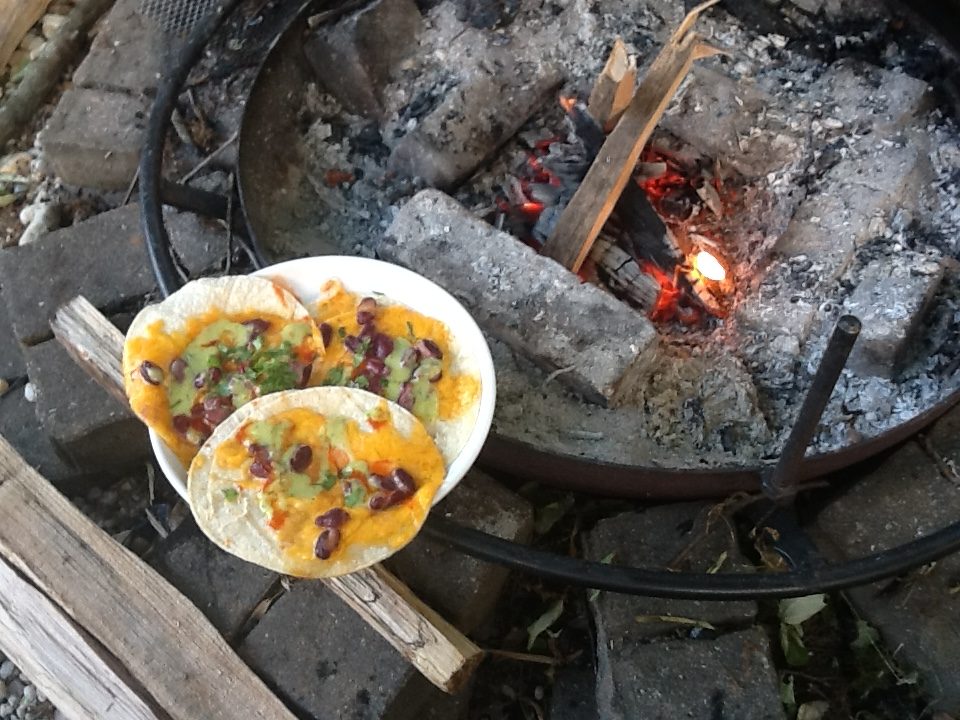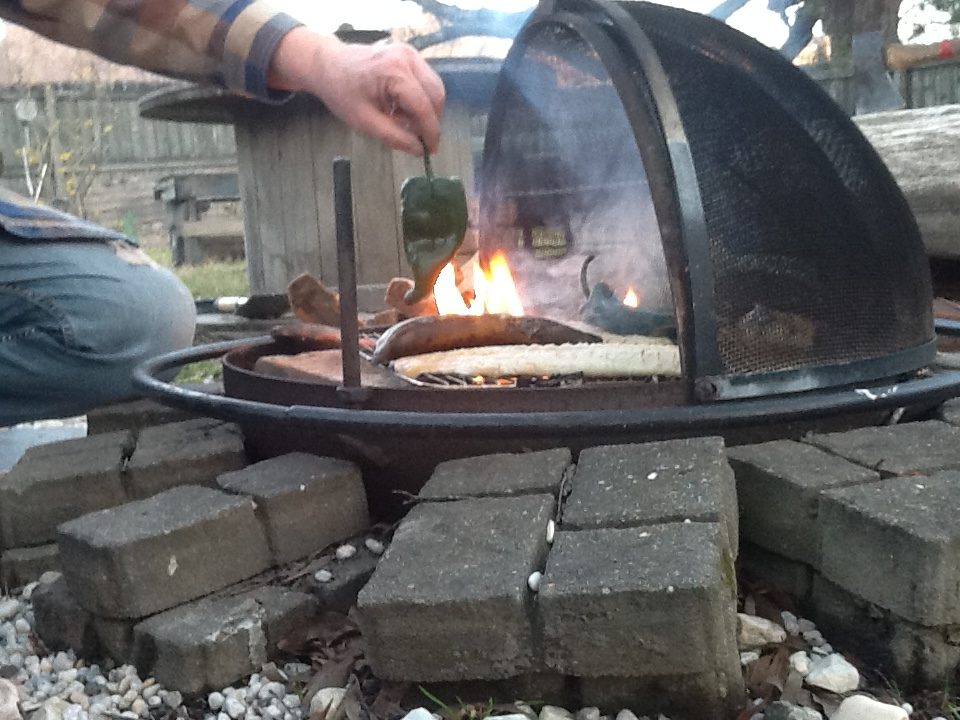The instructor-in-training for the day reaches into her pack, shakes her head and swears softly.
“We left a bottle of fuel at basecamp. Who do we call for resupply?”
Liz, NCOAE’s course director walks over to the instructor and looks into the canvas bag. Then she shrugs her shoulders and says, “There’s no one to call. Looks like we’ve only got fuel for three out of eight nights.”
Scanning the forest, Liz points to a pile of rocks on the ground where previous groups have built fires and says, “Collect wood, build a fire, cook dinner.”
A few days earlier, this same group was packing for an Instructor Training Course. Participants are educators who have been in the outdoor education and adventure industry for a few years and have a firm grasp on technical skills. We use the course to familiarize these future instructors with our curriculum, educational practices and other components that are unique to NCOAE.
So, when an Instructor Course group forgets to pack an important piece of gear — in this case fuel — we like to see how problem solving, creativity and ingenuity unfold to keep an expedition moving forward.
Now, with a fire started and a meal selected for the evening, it’s time to start cooking. These NCOAE instructors in training begin by building a potholder out of rocks, stirring up the coals, and blending ingredients together for the meal.
There’s little confusion, no drama, and the meal comes together because these educators have been practicing outdoor skills at home in their backyards as well as in outdoor settings like the one mentioned here.
Practice makes perfect
The way these participants upped their backcountry skills and calmly slapped together a great evening meal was to practice their “seeking game.”
It was back in the late 1990s when a neurologist named Jaak Panksepp coined the term “seeking system” in regard to how curiosity (adventure) takes people out of their normal situation and encourages them to explore, learn and move beyond their personal comfort zone.
And cooking over a fire — especially when you’re missing an important tool — is a wonderful way to get your “seeking system” going.
To get started, you need to find a place to call your own cooking lab. If you have space in your backyard for a small fire pit or fire ring, you’ve got a lab. If not, ask your friends or neighbors if you can use their space to practice cooking a meal that you’d be glad to then share with them. Maybe even get them to give you an honest evaluation of your outdoor cooking skills.
A third option is to head to a local park that has an outdoor grill and get busy cooking.
Where is the focus for your backcountry meals?
To my mind, the evening meal should be the main focus for outdoor cooking. That’s where you really have the time to show off your skills. At breakfast, you’re usually breaking camp and leaving the area pretty soon after the sun rises, which places less importance on a huge morning meal.
As for lunch, that’s usually more of a consistent snacking experience just off the trail and again, not the time to set up for an elaborate meal.
Dinners are where you can shine. Personally, I find that roasting veggies and creating sweet potato tacos make for an amazing dinner when I’m in the backcountry. Packing up veggies are great for snacks, dinner and even breakfast. And while they certainly add some weight to the pack, the payoff for carrying the extra weight comes in the taste and energy return.
My approach to meals on the trail is to just go for it. Take what you know how to cook in your kitchen at home and creatively turn it into a delicious camp meal. Sometimes, I’ll find myself standing over the stove at home asking myself, “Can I cook this in the backcountry?” Then I’ll take the ingredients to my outdoor fire pit and try it out.
Another thing I do is keep a photo journal of my trail meals, so I can look at them later and see what works and what doesn’t make for a great backcountry menu item.
Of course, it doesn’t hurt at all to read a cookbook, watch a television food show or documentary for inspiration, or make cooking a personal project that sparks your own “seeking system.” The payoff could be some of the most delicious adventures of your life.
– – – – – –
About the Author: Stephen Mullaney is the Director of School Partnerships at The National Center for Outdoor & Adventure Education (NCOAE). He has worked domestically and internationally with schools, organizations, and wilderness programs. His classrooms have ranged from dilapidated trailers at overcrowded, underfunded schools to the Himalayan mountains and everything imaginable in between. His past students include gang members/prisoners, education majors, college and university professors, and pioneers in the field out outdoor and adventure-based experiential education. Stephen’s philosophy is to focus on the development of positive working and learning environments. He brings more than a quarter of a century of education experience and understanding of human nature to any organization, whether it is an education institution or a private company. His writing has appeared in adventure sports/education journals, magazines and on the web. Stephen prefers to arrive by bicycle and sit in the dirt.
TALK TO US
Have any further questions about our courses, what you’ll learn, or what else to expect? Contact us, we’re here to help!


Leave a comment